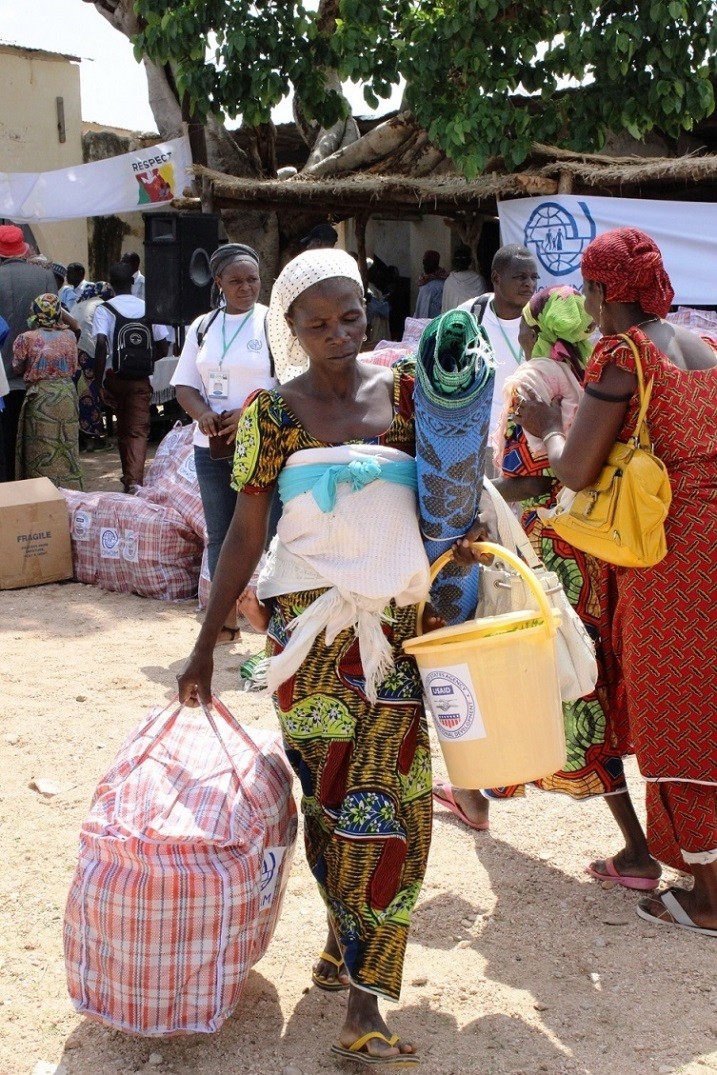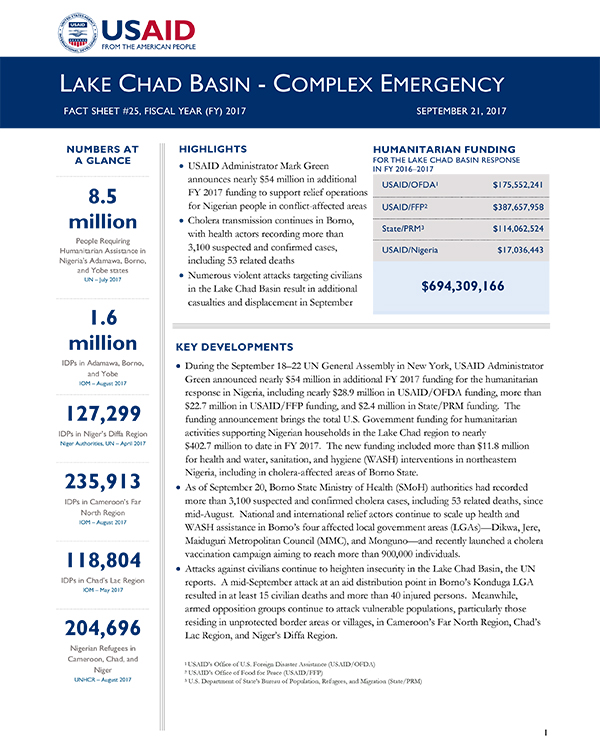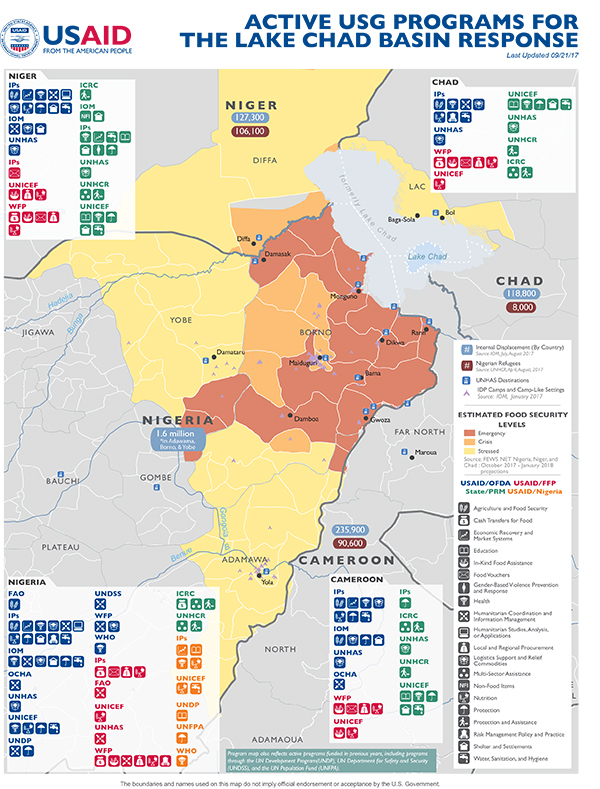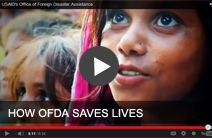- What We Do
- Agriculture and Food Security
- Democracy, Human Rights and Governance
- Economic Growth and Trade
- Education
- Ending Extreme Poverty
- Environment and Global Climate Change
- Gender Equality and Women's Empowerment
- Global Health
- Water and Sanitation
- Working in Crises and Conflict
- Disaster Assistance
- Political Transition Initiatives
- Conflict Mitigation and Prevention
- Countering Violent Extremism
- Disaster Risk Reduction
- Peacebuilding and Reconciliation
- Providing Safe & Secure Environments for Development
- Recovering From Crisis
- Resilience
- Tech Challenge for Atrocity Prevention
- World Humanitarian Day
- U.S. Global Development Lab

Key Developments
USAID's Office of U.S. Foreign Disaster Assistance (USAID/OFDA) is responding to the complex emergency in the Lake Chad Basin region, including Nigeria, Cameroon, Chad, and Niger.
Despite some returns to areas of origin in the Lake Chad Basin, armed attacks and renewed military operations have increased population displacement, particularly cross-border displacement, in recent months, according to the UN. The International Organization for Migration reported that conflict had displaced more than 235,000 Nigerian internally displaced persons to Cameroon’s Far North as of August 31. In addition, the UN also reports that an increased number of security incidents has resulted in new displacements in Cameroon and rendered additional areas inaccessible for humanitarian actors.
In Cameroon’s Far North, security analysts reported an increase in security incidents and attacks, as well as a geographical shift in the location of recent incidents—from Logone-et-Chari Department to Mayo-Sava Department— when compared to 2016, according to the UN. In addition, a recent attack in Mayo-Tsanaga Department prompted the displacement of approximately 700 people and resulted in four deaths and numerous abductions, the destruction of houses and a church, and looting of household materials. Since January, more than 40 person-borne improvised explosive device attacks have occurred in Far North Region, primarily in Mayo-Sava, the UN reports.
USAID/OFDA is responding to the complex emergency in the Lake Chad Basin region. Please visit our web page for additional information.
Background
Since 2015, Cameroon’s Far North Region experienced increasing attacks from Boko Haram, disrupting basic services such as health and education, prompting population displacement, and limiting agro-pastoral livelihoods. Approximately 1.5 million people in Far North were food-insecure in September 2016—a nearly ten percent increase in food insecurity compared to September 2015, according to the UN. The region also hosts more than 228,000 internally displaced persons. Overall, the UN reported that 1.6 million people required humanitarian assistance as a result of Boko Haram-related insecurity.










Comment
Make a general inquiry or suggest an improvement.